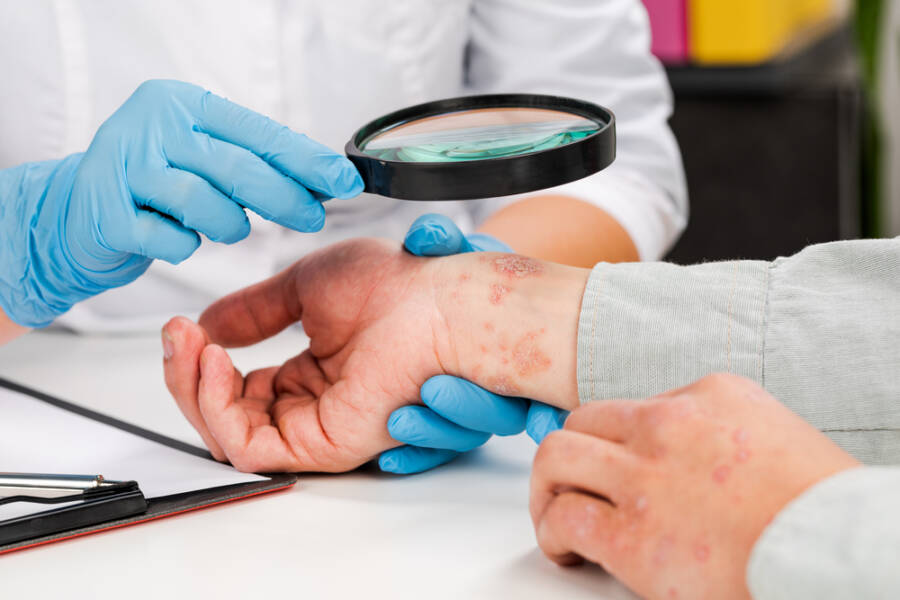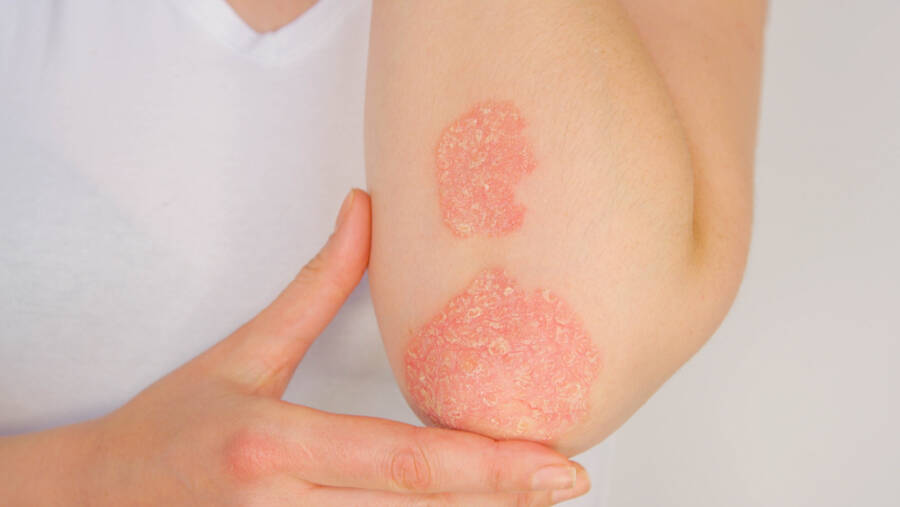Mind, body, skin.
When you watch yourself in the mirror, do you see the glow of your true, vibrant self shining through? Or do your eyes seem to zoom in on imperfections, allowing them to steal the spotlight?
No matter the answer, the truth is that there is no cream or serum that can truly change what you see. A breakout or a dark spot can possibly nudge your self-perception, but the way you see yourself runs deeper than your skin.
Your skin tells a story of what happens beneath the surface. Your skincare routine must be paired with a little self-awareness so you can nurture the powerful connection between your mind, body, and skin and rediscover how real beauty starts within.

What’s the science behind the mind-skin connection?
The link between skin and emotions is backed by science. Researchers have found a strong relationship between skin health and mental health, showing how your emotions and mind can affect your skin in real ways.
A 2016 study reveals that people with higher levels of mindfulness deal with less emotional distress, and their overall skin health is better. Among 120 patients included in the study, about one-third of them were struggling with social anxiety. People who are living less mindfully tend to feel more shame related to their skin.
Stress plays a major role in skin health, and research shows that stress hormones such as cortisol can impact wound healing, call renewal, and inflammation, as well as the aging process.
During another study, it was found that 85% of dermatology patients think that managing emotional stress is key to living with a skin condition. Around 30% of people with skin concerns experience psychological challenges, but it’s often unclear whether their skin condition causes emotional distress or it’s vice versa. The connection, however, is undeniable. So, by taking care of your mind, you might be giving your skin a hand, too.
Mindfulness and wound healing
Taking care of your mental health doesn’t only help with how you see your skin, but it actually supports your body’s natural healing process. A study taking place in 2018 explored this connection by observing 49 adults who participated in an 8-week Mindfulness-Based Stress Reduction program. The ones who practice mindfulness showed improved skin permeability, which is a key factor in healing, and lower levels of interleukin and placental growth factor, both being linked to inflammation.
Mindfulness could play a role in speeding up the early stages of wound healing, and even if more research is needed, it highlights another way mindfulness is able to bridge the gap between mind and body. This seems to be the key to healing from the inside out.

Psoriasis and mental health
When it comes to psoriasis and mental health, this is a two-way street. By studying over 1500 people, it was obvious that people with psychological factors can worsen psoriasis and also result from it creating a complex cycle.
Some treatments are promising in treating psoriasis, such as cognitive behavioral therapy, motivational interviewing, mindfulness-based therapies, and educational and interdisciplinary approaches.
Even if these treatments show potential, researchers need more studies to understand their practicality, effectiveness, and affordability. With the mental health connection running deep, a 2020 review found a link between psoriasis, low self-esteem, and depression.
Stress also plays a significant role, and a 2010 study showed that daily stressors can worsen psoriasis symptoms by raising cortisol levels during high-stress moments. A 2026 study found that stress triggers inflammatory responses as well as the nervous system, starting to exacerbate the symptoms. More than half struggle with sleep, adding to the stress loop.This talks about the importance of treating both the body and the mind when managing psoriasis. You need to treat it as a whole, being a partnership that can t be ignored.
Eczema and the Impact of Stress
It’s proven that stress has a significant effect on eczema or atopic dermatitis (AD), and it influences both the mind and the skin.
A research study from 2021 develops the discussion about the anxiety that comes with itching, called catastrophizing. A study on 155 AD patients created mindful practices that reduced the anxiety and itching intensity. This is the key to mindful strategies that show promise. It’s important to act with awareness, to have an orientation based on acceptance and non-judgment, as well as a non-reactive orientation.
These approaches helped patients manage the emotional response of itching, lightening the severity of their symptoms.
A 2021 study highlighted social deprivation and stress negatively impacting eczema along with factors such as air pollution and climate change. Stress was shown to affect the next generation, as a 2018 review found a strong link between the mother’s stress and an increased risk of eczema.
A small 2021 study of 31 eczema patients’ mental health challenges came with the knowledge that 22.6% experienced mild depressive symptoms, 38.7% had moderate to severe depressive symptoms, 16% had mild to moderate depressive symptoms, and 22.6% had severe symptoms.

Participants also struggled with sleep disorders, low self-esteem, self-criticism, and indecision.
This research underscores the huge role stress plays when it comes to managing eczema, highlighting the need for a holistic approach including both physical and mental health care. Our skin is like a canvas reflecting what’s happening inside us, mentally and emotionally. When we’re anxious, stressed, and upset, our body releases certain hormones such as cortisol that trigger inflammatory responses. They can cause skin conditions that lead to cycles of frustration. You can imagine being already stressed and looking in the mirror to see a breakout or an eczema flare-up. It can feel like your emotions are simply showing up on your skin, However, it’s not just the obvious flare-up. If you experience long-term emotional stress, this can accelerate dullness and skin aging and exacerbate underlying conditions you didn’t know you had.
The thing is, you can’t control the stressors or the emotional challenges that life throws at us, but we can change the response. This is where the mental health tools come into play. Meditation, mindfulness, and other techniques can lower stress, which leads to reducing inflammation and improving the appearance of your skin.
Mindfulness can help you shift the focus away from the constant worry about how your skin looks and bring you back to the present, allowing you to feel peace in your own body. This was proven to ease the physical stress that usually shows up on our faces and bodies.
Mental health struggles such as depression anxiety and low self-esteem have a strong connection with how we perceive our skin and it is not just about the condition itself, but the emotional burden it carries, If you feel self-conscious about skin issues, this can make you more stressed, worsening any skin condition and ultimately creating a vicious cycle. Healing happens when we break the cycle and address our emotional health first. This is not about treating the skin condition but about supporting your mental health and well-being too.
The physical act of taking care of your skin, like applying your favorite lotion or doing a face mask, can be a small but meaningful act of self-care. This is a moment to slow down and tune into how you’re feeling, giving yourself permission to nurture your body. It’s not a cure-all, but it can be a part of the healing process, mentally and physically as well.
In the end, it’s all about understanding that our skin is more than just a surface thing; it’s connected to mental health, emotions, and overall well-being. The next time you’re struggling with a breakout, remember to be kind to yourself. Your skin tells a story and with extra care for both your body and mind, you can rewrite your story into one of self-love and healing.
If this topic is interesting to you, you can read this book on Amazon: Skin Deep: A Mind/Body Program for Healthy Skin, by Ted A. Grossbart.
Read next: Feeling Stressed? Eat These 4 Foods to Calm Down













